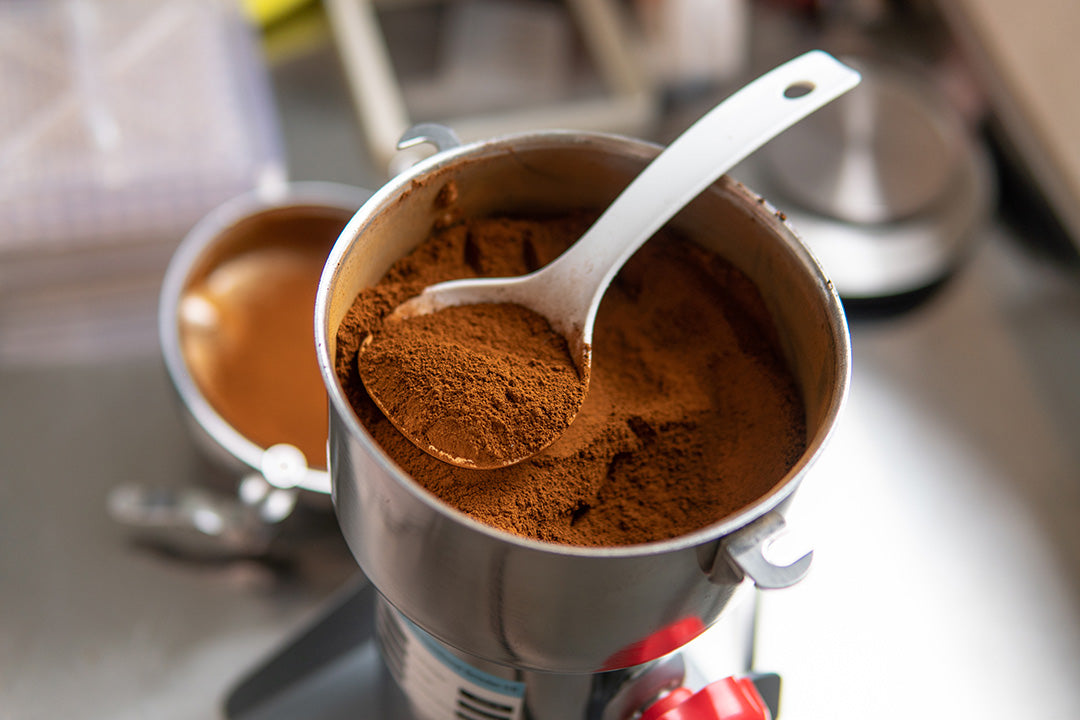
Mushroom Extract vs Powder: Which is Right for You?
Share
The world of functional mushroom supplements can be confusing, with countless products promising a myriad of health benefits. Two of the most common forms are extracts and powders. But which one is right for you? Let's break down the key differences between mushroom extracts and powders to help you make an informed decision.
Understanding the Difference
Mushroom powder is created by drying and grinding the entire mushroom fruiting body. This method preserves a broader spectrum of nutrients, including fiber, vitamins, and minerals. However, the concentration of bioactive compounds like beta-glucans and triterpenes might be lower compared to extracts.
Mushroom extract is produced by using specific solvents to isolate and concentrate the desired compounds from the mushroom. This process results in a higher concentration of bioactive compounds, making extracts more potent. However, the extraction process can also remove some beneficial components found in the whole mushroom.

Potency: Extract Takes the Lead
When it comes to potency, mushroom extracts generally reign supreme. The extraction process is designed to concentrate the beneficial compounds, ensuring a higher dose per serving. This can be particularly advantageous if you're looking for targeted benefits or have specific health goals.
Bioavailability: A Complex Picture
Bioavailability refers to how well your body absorbs and utilizes a nutrient. While extracts often have a higher concentration of bioactive compounds, their bioavailability can vary depending on the extraction method and the specific compounds involved.
Some studies suggest that certain compounds in mushroom extracts might be more readily absorbed than those in powders. However, it's essential to consider other factors, such as the overall quality of the product and your individual digestive health.
Taste and Texture: Powder Offers Versatility
Mushroom powders generally have a milder taste and can be easily incorporated into various foods and beverages. They offer greater versatility in terms of consumption methods.
Mushroom extracts often have a stronger, more concentrated flavor. They are typically available in capsule or liquid form, limiting their culinary applications.
Cost: Powder is Generally More Affordable
Mushroom powders tend to be more budget-friendly compared to extracts. Since the entire mushroom is used, there's less processing involved, leading to a lower overall cost.
Mushroom extracts can be significantly more expensive due to the additional steps required in the extraction process.
Which is Right for You?
Ultimately, the choice between mushroom extract and powder depends on your individual needs and preferences. Consider the following factors:
- Desired benefits: If you're looking for a concentrated dose of specific compounds, an extract might be the better choice. For a broader spectrum of nutrients, a powder could be more suitable.
- Taste and texture: If you prefer a milder flavor and enjoy experimenting with different consumption methods, a powder might be the way to go. If you prioritize potency and convenience, an extract could be a better option.
- Budget: Consider your budget when making a decision. Powders are generally more affordable than extracts.

It's also essential to purchase products from reputable brands that prioritize quality and transparency. Look for products with third-party testing to ensure purity and potency.
Remember: This information is intended for general knowledge and informational purposes only, and does not constitute medical advice. Always consult with a healthcare professional for personalized guidance.